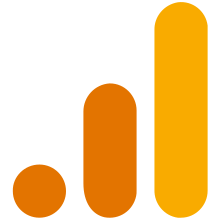Google[1] Analytics, un puissant outil d'analyse web de Google, permet aux propriétaires de sites web de surveiller et d'examiner de près leur site web. Internet[2] le trafic. Des données essentielles sont fournies, notamment la durée de la session, le taux de rebond et le nombre de pages consultées par session. Cet outil s'intègre également de manière transparente à Google Ads pour un suivi efficace des campagnes et fournit des rapports sur le commerce électronique. Google Analytics fonctionne grâce à un code de suivi basé sur JavaScript et utilise des balises de page pour la collecte de données. Il a évolué au fil des versions, Google Analytics 4 (GA4) étant la plus récente. GA4 introduit des fonctionnalités innovantes telles que des mesures prédictives et une personnalisation accrue. Il est également compatible avec les applications mobiles, puisqu'il propose des kits de développement logiciel pour iOS et Android. En dépit de préoccupations mineures concernant la protection de la vie privée et d'éventuels problèmes de performance, Google Analytics reste le principal service d'analyse du web, privilégié par un grand nombre de sites web de premier plan. Google propose une assistance étendue et des ressources de formation pour les utilisateurs, ce qui en fait un outil privilégié pour l'analyse web.
Google Analytics est un analyse web service offert par Google qui suit et rapporte le trafic des sites web ainsi que le trafic et les événements des applications mobiles, actuellement sous la forme d'une plateforme au sein de la marque Google Marketing Platform. Google a lancé le service en novembre 2005 après avoir acquis Oursin.
 | |
Type de site | Analyse du web |
|---|---|
| Propriétaire | |
| URL | l'analyse |
| Commercial | Oui |
| Inscription | Exigée |
| Lancé | 14 novembre 2005 |
| Statut actuel | Actif |
En 2019, Google Analytics est le service d'analyse web le plus utilisé sur le web. Google Analytics fournit un SDK qui permet de recueillir des données sur l'utilisation des iOS et Android applicationsconnu sous le nom de Google Analytics pour les applications mobiles.
Google Analytics a subi de nombreuses mises à jour depuis sa création et en est actuellement à sa 4e itération-GA4. GA4 est l'installation par défaut de Google Analytics, et est la version renommée pour la propriété (App + Web) que Google a publié en 2019 sous une forme bêta. GA4 a également remplacé Universal Analytics (UA). L'une des caractéristiques notables de GA4 est l'intégration naturelle avec l'application Google BigQuery-une fonctionnalité qui n'était auparavant disponible qu'avec la version entreprise de GA 360. Cette décision témoigne des efforts déployés par Google pour intégrer GA et ses utilisateurs gratuits dans son offre plus large de services en nuage.
À partir du 1er juillet 2023, Universal Analytics a cessé de collecter de nouvelles données, Google Analytics 4 lui succédant en tant que principale plateforme d'analyse. Google avait déjà annoncé ce changement en mars 2022. Bien que les utilisateurs aient eu la possibilité d'utiliser Universal Analytics jusqu'à la date limite de juillet 2023, aucune nouvelle donnée n'a été ajoutée à UA depuis sa disparition. Le 1er juillet 2024, tous les utilisateurs, y compris GA 360, perdront l'accès à toutes les propriétés d'Universal Analytics.